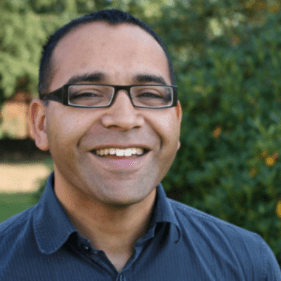Francis Collins, famous for the Human Genome Project and now director of the National Institute of Health, before a Veritas Forum:
I hope to give you some things to think about, things that have led me from being an atheist to becoming a believer and a follower of Jesus. I will also explain why I see no conflict between that perspective and that of being a scientist who is rigorous in my views of data, but who also sees that the study of nature is not all there is.
 This quotation is from A Place for Truth: Leading Thinkers Explore Life’s Hardest Questions
This quotation is from A Place for Truth: Leading Thinkers Explore Life’s Hardest Questions. The second part of this book addresses science questions, and it begins well, with Collins.
Collins begins with genomes, the DNA instruction book in our systems. The human genome adds up to 3.1 billion letters/instructions, and if we were to read that book it would take 31 years of 24 hour days to read it all. Every time a cell divides, the whole genome is there — and sometimes, but rarely, it makes a mistake and we get cancer or birth defects, and sometimes, but rarely, it lurches forward and that’s called evolution.
But the Human Genome Project enables scientists to understand health and diseases and will be useful in diagnosis and healing and prevention. When Collins gave his paper he predicted within 15 years medicine will be radically different. But Collins wants to talk about worldviews…And why he says it the way he does doesn’t make sense to me: there are two basic worldviews, the scientific and the spiritual. What I think he means is one that excludes spiritual and others that include the spiritual, for there are clearly more than two worldviews. Anyway, he’s onto something when he asks if they can be combined.
Then he tells his story … worth reading but unfair to him to summarize here. His life change from agnosticism and then materialistic atheism occurred treating patients who were facing death with peace, and he knew he didn’t have that kind of peace. An old dying lady just asked him about his faith, and he was stunned. He went to a minister to ask questions, the minister gave him Mere Christianity. Atheism was not as reasonable as belief in God.
Five themes in nature that led Collins to Christian faith:
1. There is something instead of nothing.
2. The unreasonable effectiveness of mathematics. Why?
3. The big bang. A beginning about 13.7 billion years ago. Nature doesn’t come from nothing.
4. The precise tuning of physical constants in the universe. This gets him to Einstein’s God.
5. Moral law. This led him to confront God and holiness and his sinfulness and Jesus Christ.
He sketches the gene GULO, our defective gene that does not make Vitamin C. If God created us directly, God had to make us with a gene that does nothing. Odd and weird, and really quite unlikely.
Then a brief on BioLogos. He thinks God created through evolution and then gifted us with free will and a soul, giving humans a special status — Eikons of God.










